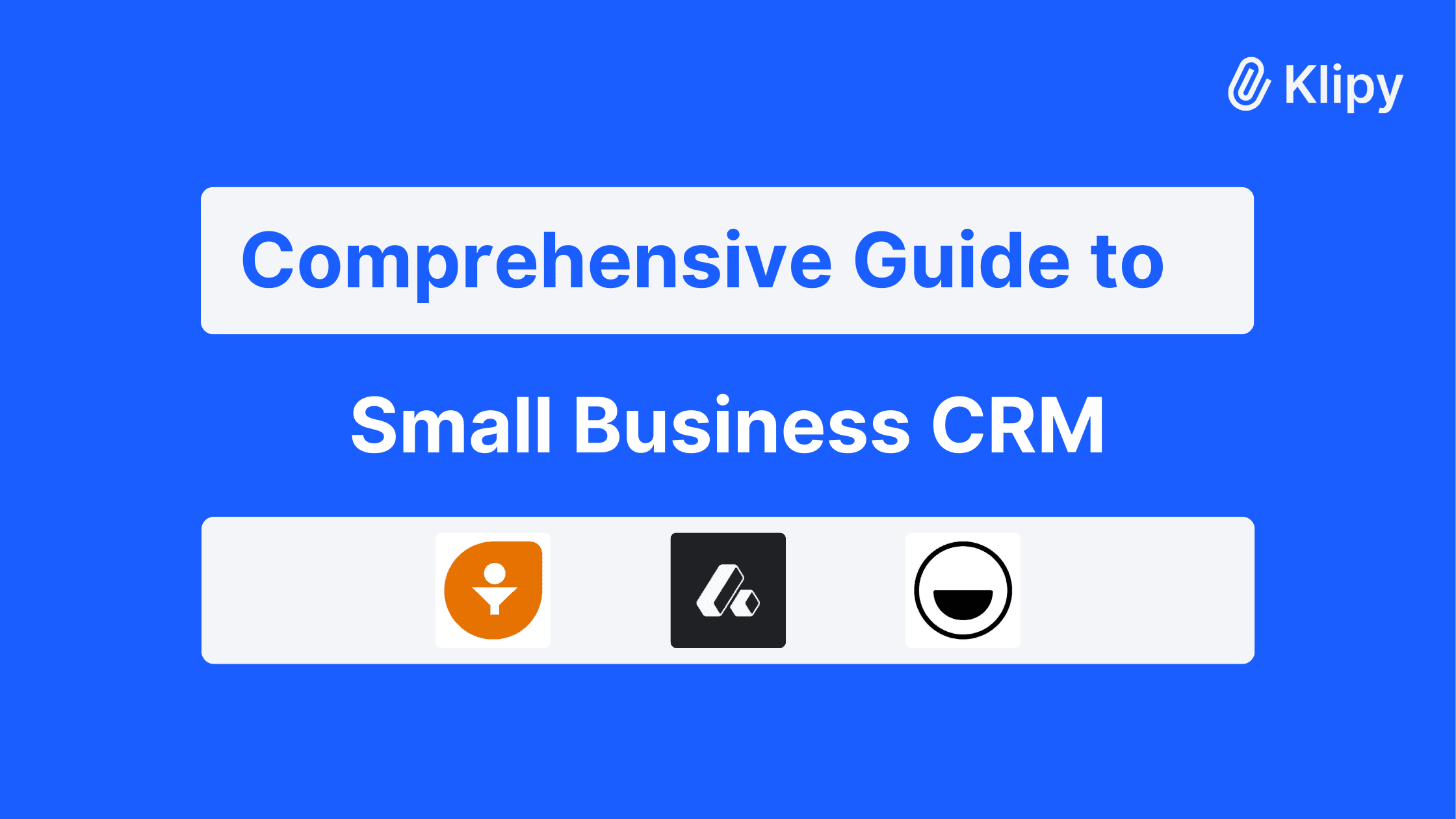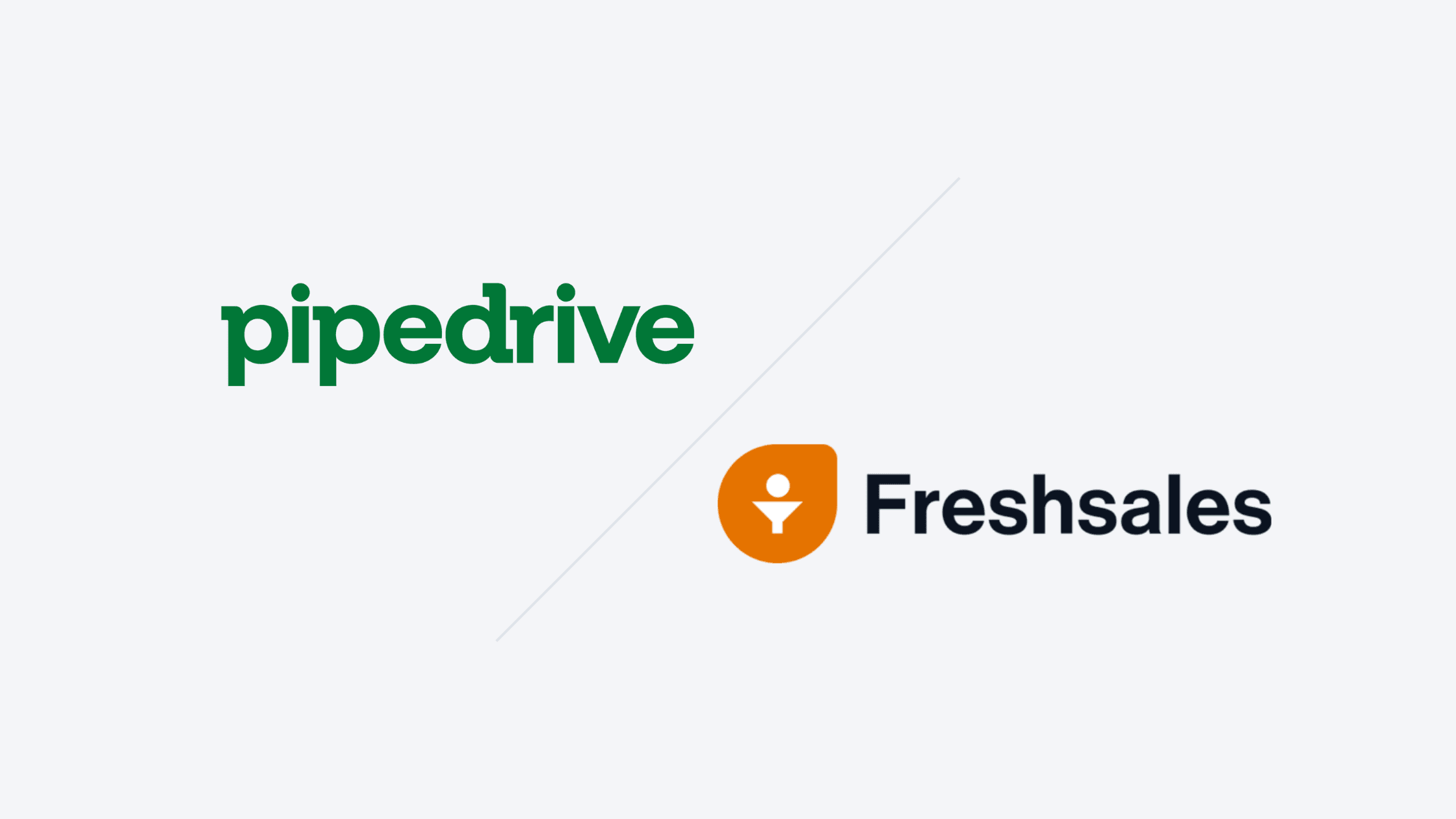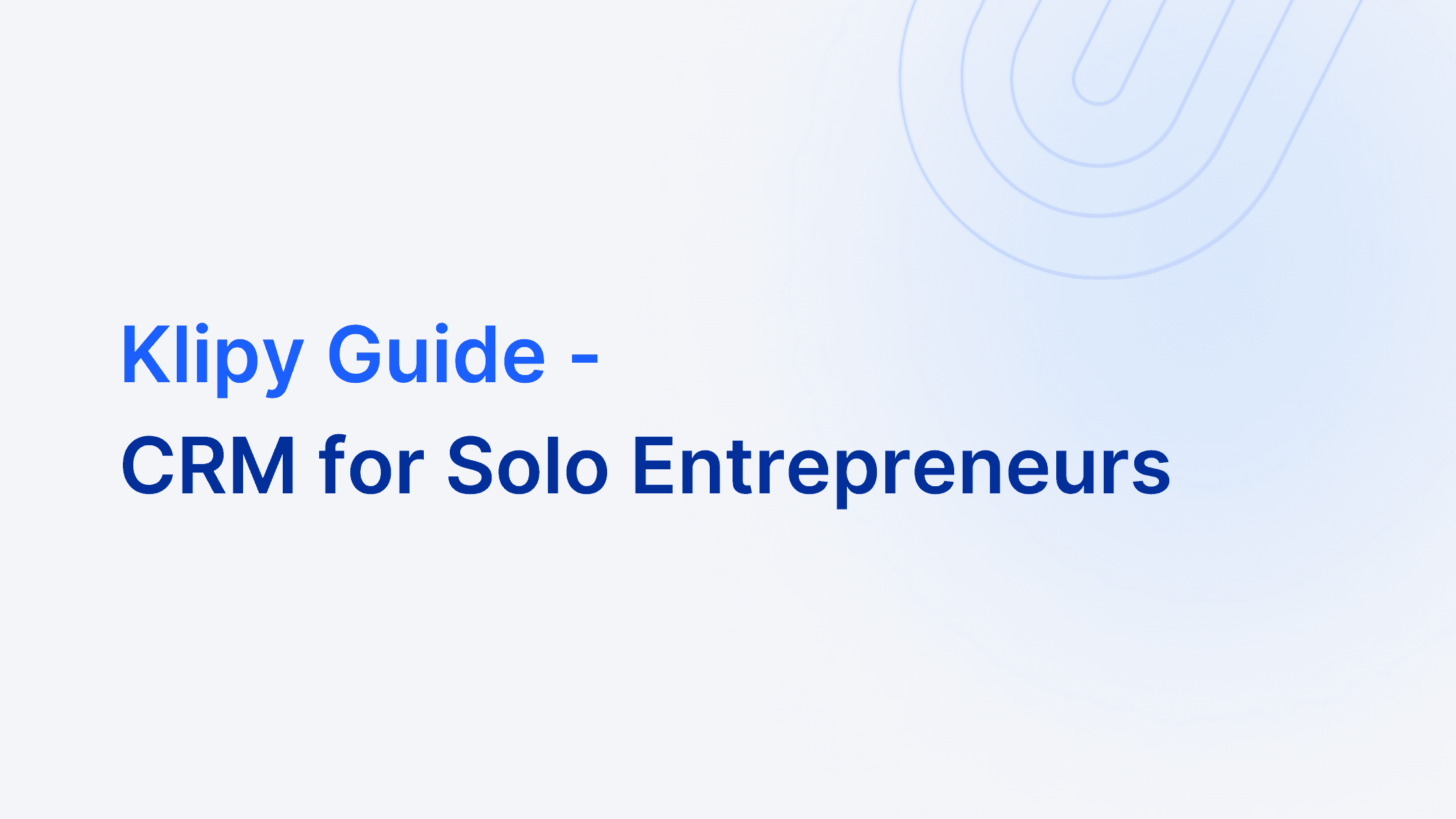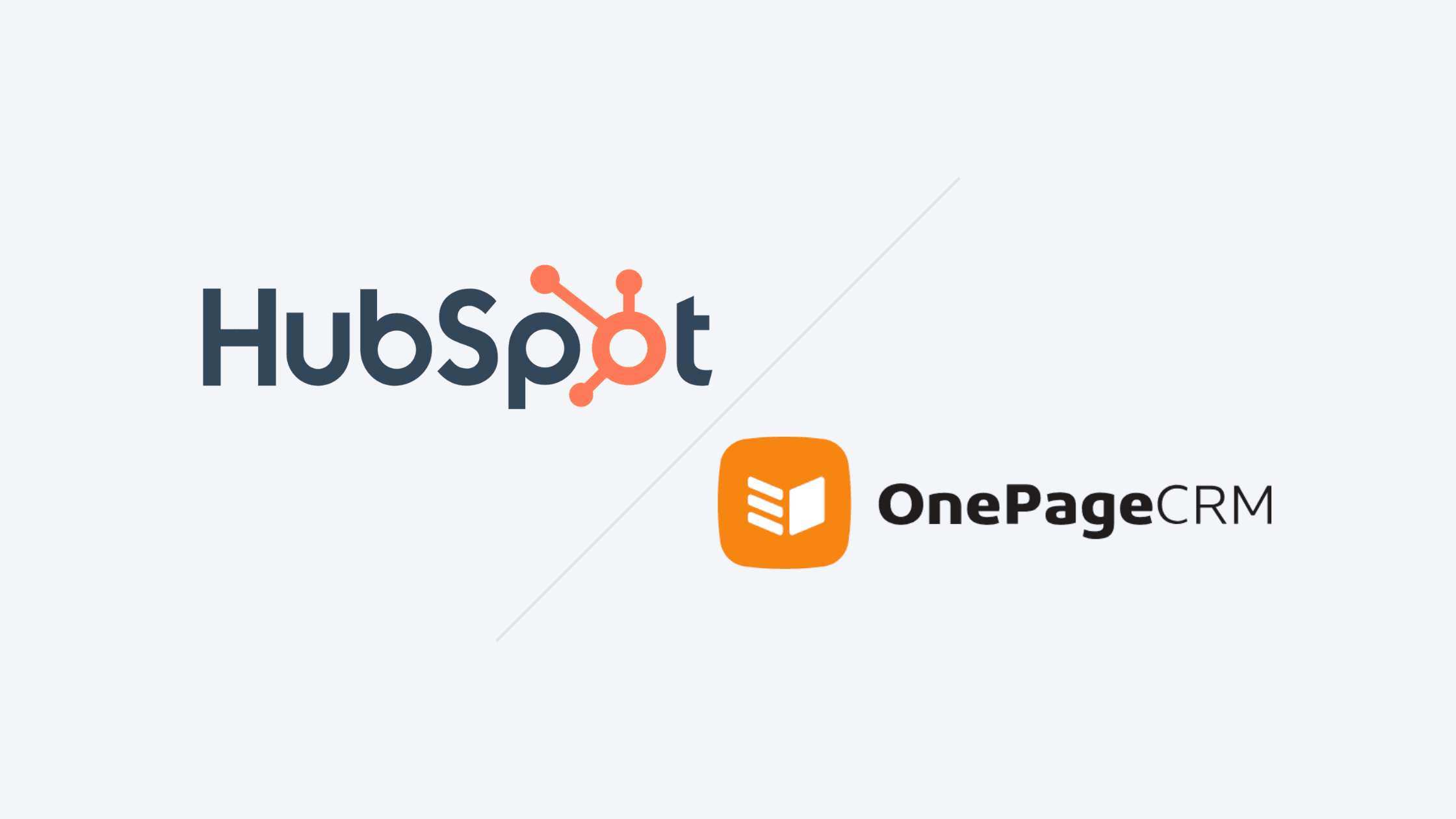Small Business
Comprehensive Guide to Small Business CRM
Explore the essentials of small business CRM. Learn how these tools streamline operations, enhance customer relationships, and drive growth.
Understanding Small Business CRM
Small business CRM systems are essential tools designed to manage customer relationships, organize contact information, and streamline sales and marketing efforts. They consolidate customer data into one platform, enhancing efficiency and improving interactions.
Imagine having all your customer details, interactions, and sales pipelines neatly organized and easily accessible. That's what a CRM does. It serves as a central hub where everything related to customer management is stored, making it easier to track leads and streamline communication.
Here's what a small business CRM can do for you:
Organize Contacts: Keep all customer information in one place for easy access.
Streamline Sales: Track and manage sales pipelines effectively.
Enhance Communication: Automate repetitive tasks and improve communication with your clients.
Boost Efficiency: Save time by automating data entry and focusing on business growth.
Understanding and implementing a CRM is crucial for small business growth and efficiency. It allows you to provide personalized services and stay on top of customer needs, making your operations smoother and more productive.
Why Small Businesses Need CRM
Benefits of CRM for Small Businesses
Klipy CRM helps small businesses manage customers and grow. Our CRM boosts efficiency and customer service through automation and data insights.
Our CRM benefits small businesses in these ways:
Improved Customer Management: We centralize customer data for smoother, personalized interactions, leading to better service and relationships.
Sales and Marketing Automation: We automate repetitive tasks, freeing up time for targeted marketing and efficient sales.
Data-Driven Insights: We provide insights into customer behavior and sales trends, helping you make informed decisions and target resources effectively.
Enhanced Collaboration: Our shared notes and real-time updates boost team coordination, communication, and productivity.
Scalability: As your business grows, we grow with you, adapting to increasing demands and complex sales cycles.
For a comprehensive evaluation process when choosing the right CRM, explore our Small Business CRM Checklist (2024 Edition). Use our features to streamline operations, focus on growth, and improve customer interactions. Our intuitive design and automation capabilities simplify CRM processes, allowing you to concentrate on expanding your business.
Key Features of Small Business CRM
A small business CRM is packed with features that make managing customer relationships a breeze. At the core is contact management, which centralizes all your customer data. This means you have every interaction, detail, and note right at your fingertips.
Lead tracking is another crucial feature. It helps you monitor potential customers throughout the sales pipeline, ensuring you never miss an opportunity. With clear visibility, you can prioritize leads and focus on closing deals.
Automation capabilities save you tons of time. Routine tasks like follow-ups and data entry are handled automatically, allowing you to concentrate on what truly matters—growing your business. For more on how automation and other CRM features can benefit small businesses, explore our CRM review and comparison for small business owners.
Accessing your CRM on the go is essential for flexibility. That's where mobile access comes in. You can update records, check on tasks, and communicate with clients from anywhere, keeping your operations smooth and uninterrupted.
Integrating with existing tools is also key. A CRM should seamlessly connect with the software you already use, ensuring a cohesive workflow. This integration enhances productivity and reduces the hassle of switching between platforms.
Customization allows the CRM to fit your specific business needs. Tailoring the system ensures it aligns perfectly with your processes and goals, providing a personalized experience that drives success. To understand when your business might need a CRM, consider reading about the signs your small business needs a CRM.
Choosing the Right CRM
Choosing the right CRM for your small business involves a few key steps. Start by identifying what challenges your business faces. Are you struggling with disorganized customer data or inefficient communication? Knowing your pain points will guide you in selecting a CRM that addresses them.
Evaluate how a CRM will fit with your current systems. It should integrate smoothly with the tools you already use, ensuring a seamless workflow. Compatibility is crucial for minimizing disruptions and maximizing efficiency. For more insights on how CRM systems can enhance communication and automate routine tasks, you might find our guide to understanding CRM helpful.
Consider your budget. Find a CRM that offers the features you need without breaking the bank. Many CRMs provide flexible pricing options, so look for ones that can scale with your business growth. Balance cost-effectiveness with functionality to ensure long-term value. You can explore our review of the best free CRM software for small businesses to find cost-effective options.
Testing different CRM platforms through demos can be enlightening. It helps you see if the CRM meets your specific needs. Pay attention to ease of use and whether it can adapt to your business processes.
Here's a quick guide:
Identify Challenges: Know what problems you need the CRM to solve.
Check Compatibility: Ensure it works well with your existing tools.
Evaluate Budget: Look for affordability and scalability.
Test Demos: Try out platforms to see what fits your needs best.
By following these steps, you can choose a CRM that enhances your operations and supports your business growth.
Comparing Small Business and Enterprise CRMs
Small business CRMs and enterprise CRMs serve different needs. Enterprise CRMs are built for large organizations with complex requirements. They support multiple departments and offer extensive analytics, handling large data volumes. These systems often require IT management and involve multiple modules to cater to diverse organizational demands.
Small business CRMs, like Klipy, focus on simplicity and affordability. They're designed with essential features that streamline customer management without overwhelming users. These CRMs automate tasks, organize customer data, and enhance communication, making them perfect for businesses looking to improve efficiency and growth. For more insights on how simple CRM systems can benefit small businesses, explore our guide on simple CRMs and their advantages.
Key Differences:
Complexity: Enterprise CRMs handle intricate processes with advanced features, while small business CRMs emphasize ease of use.
Cost: Enterprise solutions can be expensive due to their extensive capabilities. Small business CRMs are budget-friendly, offering essential tools.
Customization: Small business CRMs provide customizable solutions tailored to specific needs, ensuring they fit seamlessly into existing workflows.
Scalability: As a business grows, small business CRMs can scale to meet increasing demands, supporting more complex sales cycles.
Klipy offers a user-friendly interface with features like contact enrichment and email auto-import, providing a streamlined experience. Its AI-enhanced system ensures small businesses can manage customer relationships efficiently, adapting as they grow. To see how Klipy stands as a strong alternative to more complex systems, consider our comparison of popular CRM alternatives.
Attio for SMB
Attio iis a modern CRM platform that stands out for its clean design and highly customizable features. Founded with the goal of making CRM more intuitive and collaborative, Attio allows businesses to manage relationships in a more personalized way.
It features a clean, intuitive user interface that allows teams to customize their workspaces and manage customer data easily. This makes it particularly appealing for small to mid-sized businesses or startups that need a CRM that adapts to their evolving processes without extensive training. Attio emphasizes real-time collaboration and a streamlined experience, which can enhance productivity.
Key Features of Folk:
Customizable CRM: Attio allows users to tailor their CRM experience to fit their specific workflows, making it easy to manage sales pipelines and customer interactions according to existing business processes.
Real-Time Collaboration: The platform supports team collaboration through features like in-line comments, assigned tasks, and real-time notifications, ensuring that team members stay aligned on customer interactions and updates.
Data Integration and Enrichment: Attio can pull data from external sources to enrich customer profiles, helping businesses maintain a comprehensive view of their contacts.
Automation: Users can create custom automations to streamline repetitive tasks, such as data entry and follow-ups, which enhances efficiency and allows teams to focus on building relationships.
Intuitive Interface: The user interface is designed to be clean and easy to navigate, reducing the learning curve for new users and enabling quick adoption.
Command Palette and Instant Search: Attio features a command palette for quick access to records and tasks, enhancing productivity through efficient navigation.
Pros:
High Customizability: Attio's ability to adapt to different business processes is a significant advantage, allowing businesses to mold the CRM to their needs rather than conforming to a rigid structure.
Collaboration Features: The platform promotes teamwork and communication, making it easier for teams to work together on customer management.
User-Friendly Design: The intuitive interface makes it accessible for users with varying levels of technical expertise.
Focus on Efficiency: Automation features help reduce manual work, allowing teams to spend more time on strategic activities rather than administrative tasks.
Cons:
Limited Advanced Features: While Attio excels in customization and collaboration, it may lack some advanced analytics and reporting capabilities compared to more established CRMs like HubSpot.
Basic Marketing Tools: Attio is primarily focused on CRM functionalities, which may not meet the needs of businesses looking for comprehensive marketing automation tools.
Pricing Structure: Although competitive, some users may find that the pricing could escalate as they add more features or users.
Pricing:

Attio offers a flexible pricing model designed to accommodate small businesses:
Free: Attio provides a free plan up to 3 seats with basic functionalities, allowing users to test the platform without commitment.
Plus: At $29/member/month (billed yearly), this plan is ideal for small teams. It includes advanced role-based access controls (RBAC), higher workflow credits, and up to 1,000 email send credits.
Pro: At $59/member/month (billed yearly), suitable for medium teams, offering advanced reporting features with time-weighted results. Notable difference is also with their Linkedin contact exporting.
Enterprise: Starting from $119/member/month (billed yearly), tailored for larger teams, with customizable features and priority support.
For more details, you can visit their pricing page.
Folk CRM for SMB
Folk CRM takes a people-first approach to CRM, positioning itself as a contact management tool that's simple yet powerful. Focused on teams and individuals who manage a wide array of contacts, Folk is designed to organize all your professional relationships in one place.
It emphasizes simplicity and ease of use, making it an attractive option for companies that need a straightforward solution without the complexity of larger, more established CRMs.
Key Features of Folk:
Unified Contact Management: Syncs with Gmail, Outlook, LinkedIn, Twitter, and more to automatically update contacts, ensuring you always have the most current information.
Dynamic Pipelines: Offers customizable pipeline management to monitor interactions, assign tasks, and collaborate with your team.
Effective Email Campaigns: Leverage AI-generated templates or create personalized messages, schedule emails, monitor performance metrics, and set reminders for follow-ups.
folkX Chrome Extension: Quickly capture contacts from platforms like LinkedIn, Gmail, and Twitter with a single click.
Insightful Analytics: Monitor pipeline progress, email performance, and other critical metrics.
Pros:
User-Friendly Interface: An intuitive design that is accessible for those new to CRM.
Customizable Features: Tailor pipelines, tags, and more to suit your specific needs.
Advanced AI Capabilities: AI-powered features, particularly in email campaigns, make a significant impact.
Team Collaboration: Collaborate seamlessly with your team by sharing tasks, notes, and other resources.
Cons:
Occasional Bugs: Being a newer product, some users have encountered occasional bugs, especially with certain integrations.
Long Feature Wishlist: Some users desire more advanced features, such as improved email analytics, additional integrations, and a larger email template library.
Pricing:

Folk's pricing is rather simple, with a choice between annual or monthly subscription. They offer 14 days free trial for the users to try out the platform.
Updated - Folk do not offer free version anymore. At the end of the 14 days trial, Folk blocks the account. Although the data does not get deleted immediately, users can request extension of trial for 7 more days then will be prompted to upgrade to access back the data. If you are looking for completely free solution, you might want to take a look at other tools such as
Standard: At $20/member/month (billed yearly), this plan is ideal for small teams. It includes 2,000 emails/member/month and 500 enrichments/month, with basic CRM features.
Premium: At $40/member/month (billed yearly), suitable for medium teams, offering advanced features like custom objects and email sequences, along with 5,000 emails/member/month.
Custom: Starting from $80/member/month (billed yearly), tailored for larger teams, with customizable features and priority support.
For more details, you can visit their pricing page.
FreshWorks CRM for SMB
Freshsales CRM has gained popularity among small and medium-sized businesses (SMBs) for its combination of affordability, user-friendliness, and robust feature set. This overview will help you understand if Freshsales CRM is the right choice for your business.
Key Features of Freshsales:
Contact, Account, and Deal Management: Offers a 360-degree customer view with customizable records and visual deal tracking. Includes task management and activity logging for comprehensive relationship management.
Built-in Phone and Email: Integrates calling and emailing directly within the CRM, with automatic logging and analytics. Supports popular email providers like Gmail and Outlook.
AI-powered Lead Scoring: Utilizes Freddy AI to analyze lead behavior and automatically assign scores based on conversion likelihood. Helps teams prioritize high-potential leads with customizable scoring criteria.
Sales Pipeline Management: Provides a visual, drag-and-drop interface with support for multiple pipelines and customizable stages. Includes sales forecasting based on pipeline data.
Customizable Reports and Dashboards: Offers pre-built templates and a custom report builder for specific insights. Features interactive, real-time dashboards that can be shared for team collaboration.
Workflow Automation: Includes a visual workflow builder for creating custom, trigger-based automations. Supports time-based workflows and integrations with external apps for extended capabilities.
Mobile CRM Apps: Provides full-featured apps for iOS and Android with mobile-specific features like click-to-call and offline mode. Allows access to contacts, deals, and tasks on-the-go.
Marketing Automation: Enables creation and management of email campaigns, landing pages, and web forms for lead capture. Includes website tracking for visitor insights (available in higher tiers).
Advanced Analytics: Offers comprehensive analytics for sales activities, revenue, and team performance. Includes custom dashboards for executive-level insights.
Integrations and API: Provides native integration with other Freshworks products and pre-built integrations with popular business tools. Includes REST API and webhooks for custom integrations and real-time data sync.
Customization and Personalization: Allows creation of custom fields, email templates, and modules for industry-specific needs. Includes role-based access control for data security.
Pros:
User-Friendly Interface: Intuitive design makes it easy for teams to adopt and use effectively.
Affordability: Competitive pricing structure suitable for SMB budgets.
Robust Features: Offers a comprehensive set of tools for customer relationship management.
Customization: Ability to tailor the CRM to specific business needs.
Integration: Seamless integration with other Freshworks products and third-party apps.
AI-Powered Insights: Freddy AI provides predictive analytics and automation capabilities.
Mobile App: Access CRM data on-the-go with a fully-featured mobile application.
Cons:
Learning Curve: Despite being user-friendly, some advanced features may require time to master.
Limited Free Plan: The free tier has restrictions that may not suit all businesses.
Add-ons Cost: Some advanced features might require additional payments.
Customer Support: Response times may vary depending on the pricing tier.
Pricing:

Freshsales offers a flexible pricing model designed to accommodate small businesses:
(Note: Prices are subject to change. Always check the official Freshsales website for the most up-to-date pricing.)
Free: Basic CRM features for small teams.
Growth: $9/user/month (billed annually)
Pro: $39/user/month (billed annually)
Enterprise: $59/user/month (billed annually)
Each tier offers progressively more advanced features, with the Enterprise plan providing the full suite of Freshsales capabilities.
For more details, you can visit their pricing page.
Key Takeaways on Small Business CRM
CRMs are essential for small businesses. They streamline operations, enhance customer relationships, and support growth. With a focus on simplicity and automation, CRMs like ours make managing customer data and sales pipelines effortless.
Simplicity is key. It allows you to dive into the CRM without getting bogged down by complexity. Automation handles routine tasks, freeing up time for what matters most—growing your business.
When choosing a CRM, consider your specific needs. Look at your pain points and think about how a CRM can address them. Integration with existing tools is crucial for a smooth workflow. Budget is also a factor, so find a CRM that offers value without straining your finances.
Our platform is designed to meet these needs. Features like instant email integration, contact enrichment, and AI-enhanced automation ensure efficiency and simplicity. With a user-friendly interface, you can manage customer relationships seamlessly.
By focusing on these aspects, small businesses can enhance productivity and foster stronger customer connections. It's about making your operations smoother and more efficient, paving the way for business growth.
More from the blog





